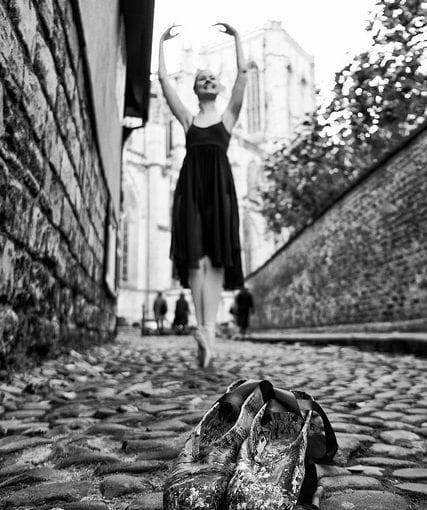Things to Know 1: Attendance
You always show up for class. You unless you are really sick, have family emergency, or some other legitimate reason for missing class, you show up. You do not get to miss because it is your birthday, you were up late from a party the night before, or have taken a spontaneous Saturday trip with your family. You cannot just blow off going to class.
Thing to Know 2: Costumes
Costumes are serious, but that doesn’t mean that you get a perfect costume. You cannot lose your costume, you must try it on right when you get home to make sure it fits, and you pay a hefty price for them. However, do not be fooled by the importance of costumes. While it is important that they look good and that you have all the extra accessories to match, you do not get a perfectly fitting, comfortable costume. More often than not, the costume is itchy, clingy, or does not fit. The straps are too long, the torso is too long, the shorts are too tight, the center is too tight. You name the issue, and most dancers have had to deal with it. The costume does not get sent back for these small inconveniences. You are expected to throw more money into the costume by either altering it yourself or through a professional. You only send your costume back when you absolutely cannot fit in it.
Things to Know 3: Bathroom Privileges
You do not go to the bathroom during class. Little kids get to go, but older kids are expected to hold it. You raise your hand in class for questions about the choreography, not to ask if you can leave to handle something should have done before class. Now, if you’ve established yourself to the teacher as a non-chronic user of the bathroom, you may get the occasional bathroom break in cases of emergency. Otherwise though, you’re expected to suck it up and wait till the hour is up.
Things to Know 4: Participation
Always participate with a hundred percent. Whether you’re feeling it or not, you show up everyday ready to work, and give it your all. Your teacher showed up and is giving his/her best, so you are expected to do the same.
Things to Know 5: Practice Clothing
You cannot show up to practice wearing whatever outfit you think is cute or comfy. You show up in tight but not revealing clothing so that teachers can see you form easily. Typical practice clothing includes leggings, some type of athletic shirt, and any warm ups you want to wear . Now, ballet class is a whole other story. You are expected to show up in pink tights, leotard, ballet shoes, and a bun. Very rarely is an exception made too this rule. You are frowned upon if you do not show up in the proper attire. Granted, you can wear warm ups if you are cold at the beginning of class, but it is best if they come off soon because warm-ups are not part of the ballet “dress code”.
Things to Know 6: Make No Enemies
Cattiness is not attractive. You may not get along with everyone at your studio, but broadcasting and acting on your feelings is not in your best interest. If you have any hope in moving up in the studio as an advanced dancer with the support of your teachers, keeping your catty, dramatic comments to yourself is best.
Things to Know 7: Do Not Disrespect Teachers
Respect of all teachers is of the utmost importance. Showing disrespect in any form or fashion teachers is an automatic strike. Talking while they are talking, making faces, ignoring instructions, and any other offense you can name are a dangerous play in the studio. Avoid it at all costs.
Things to Know 8: The Studio is Not Your Home
Treat the studio as a guest, not as a permanent resident. You do not get to lounge in the lobby, eat a four-course meal, leave your trash around, or any other messy habits that you would do at home. It is not your room, and there is no maid to come up behind you to clean up your mess. Treat the studio with respect.
Things to Know 9: Make No Enemies
While you are somewhat competing with the other dancers for better roles in dances, awards, and other highly praised positions, your peers are not your enemy. Helping another student or even receiving help from that student is not something to avoid. On the contrary, collaborating with your peers will not only get you brownie points for knowing what you are supposed to be doing, you will also get points for helping out another student. Moral of the story: Work with your peers.
Things to Know 10: Practice Outside of Class
Showing up for class without knowing your dance is unappealing to everyone. Teachers despise it because they have to reteach. It annoys fellow students because it holds back the class and will most likely result in all students getting yelled at for a few’s failure. Lastly, you will hate it too because you will be behind and lost, which is the worst of all.
